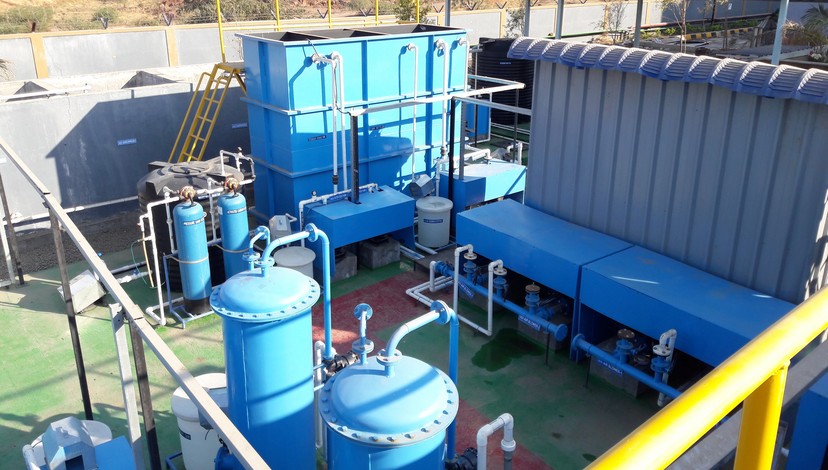We are Manufacturer, Supplier, Exporter of ETP Plants (Effluent Water Treatment Plants) from Siltara, Raipur, Chhattisgarh.
Anant Eco Solutions Pvt. Ltd. is a prominent manufacturer and supplier of water treatment plants known for its dedication to quality. We offer an extensive range of products such as water recycling plants, effluent treatment plants, sewage treatment plants and industrial water filters. We pride ourselves on our highly skilled workforce, employing some of the best technocrats in the industry. Our team is dedicated and diligent, consistently performing their duties with precision and care. This commitment to excellence enables us to deliver high quality products and services that meet the evolving demands of our clients.
Effluent Treatment Plants are specialized facilities designed to treat and manage wastewater generated from various industrial, commercial and residential sources. The primary objective of such industrial treatment plants is to remove pollutants, contaminants and harmful substances from the effluent, making it safe for discharge into the environment or reuse for non-potable purposes. The treatment process typically involves a combination of physical,chemical and biological methods to achieve the desired level of purification. Effluent management units play a crucial role in protecting the environment, conserving water resources and promoting sustainable development.
The operation of an effluent system involves several stages such as pre-treatment, primary treatment, secondary treatment and tertiary treatment. Pre-treatment involves the removal of large objects and debris from the effluent, while primary treatment focuses on the removal of suspended solids and organic matter through physical processes such as sedimentation and flotation. Secondary treatment involves the use of microorganisms to break down organic matter and remove nutrients, while tertiary treatment employs advanced technologies such as filtration,disinfection and chemical treatment to further purify the effluent.
Effective management of such plants requires careful planning, design and operation to ensure optimal performance and compliance with regulatory standards. This includes regular monitoring of effluent quality, maintenance of equipment and infrastructure and training of personnel.
Additionally, these effluent plants must be designed to accommodate varying flow rates, pollutant loads and treatment requirements, making them adaptable to different industrial and environmental conditions.
The importance of such systems cannot be overstated, as they help prevent water pollution, protect aquatic life and mitigate the risks associated with untreated effluent discharge. Moreover, these treatment units can provide opportunities for water reuse and recycling, reducing the demand on potable water sources and promoting water conservation. Microorganisms break down organic matter and remove nutrients through biological processes such as activated sludge, trickling filters and rotating biological contactors. Advanced technologies such as filtration, disinfection and chemical treatment are used to further purify the effluent. Treated effluent is discharged into the environment or reused for non-potable purposes such as irrigation, toilet flushing or industrial processes.
- Textile Industry: Such units are used to treat wastewater generated from dyeing, printing and finishing processes in the textile industry.
- Pharmaceutical Industry: Related to functioning in the pharmaceutical industry, these systems are used to treat wastewater generated from manufacturing processes including chemical synthesis and formulation.
- Oil and Gas Industry: In the oil and gas industry, the treatment plants are used to treat wastewater generated from drilling, production and refining operations.
- Leather Industry: In the leather industry, the effluent plants are used to treat wastewater generated from tanning and finishing processes.
- Dairy Industry: Such category of treatment systems are used to treat wastewater generated from milk processing and dairy product manufacturing in the dairy industry.
- Automotive Industry: Effluent plants are used to treat wastewater generated from manufacturing processes including painting and coating operations.
- Construction Industry: Effluent Treatment Plants are utilized to process wastewater produced by construction activities such as concrete batching and washing.
- Electronics Industry: In the electronics industry, these plants treat wastewater containing hazardous substances from electronics production.
